HBCU Caravan Makes Historic Stop at Santa Monica College
Cebelihle Hlatshwayo | Arts & Entertainment Editor
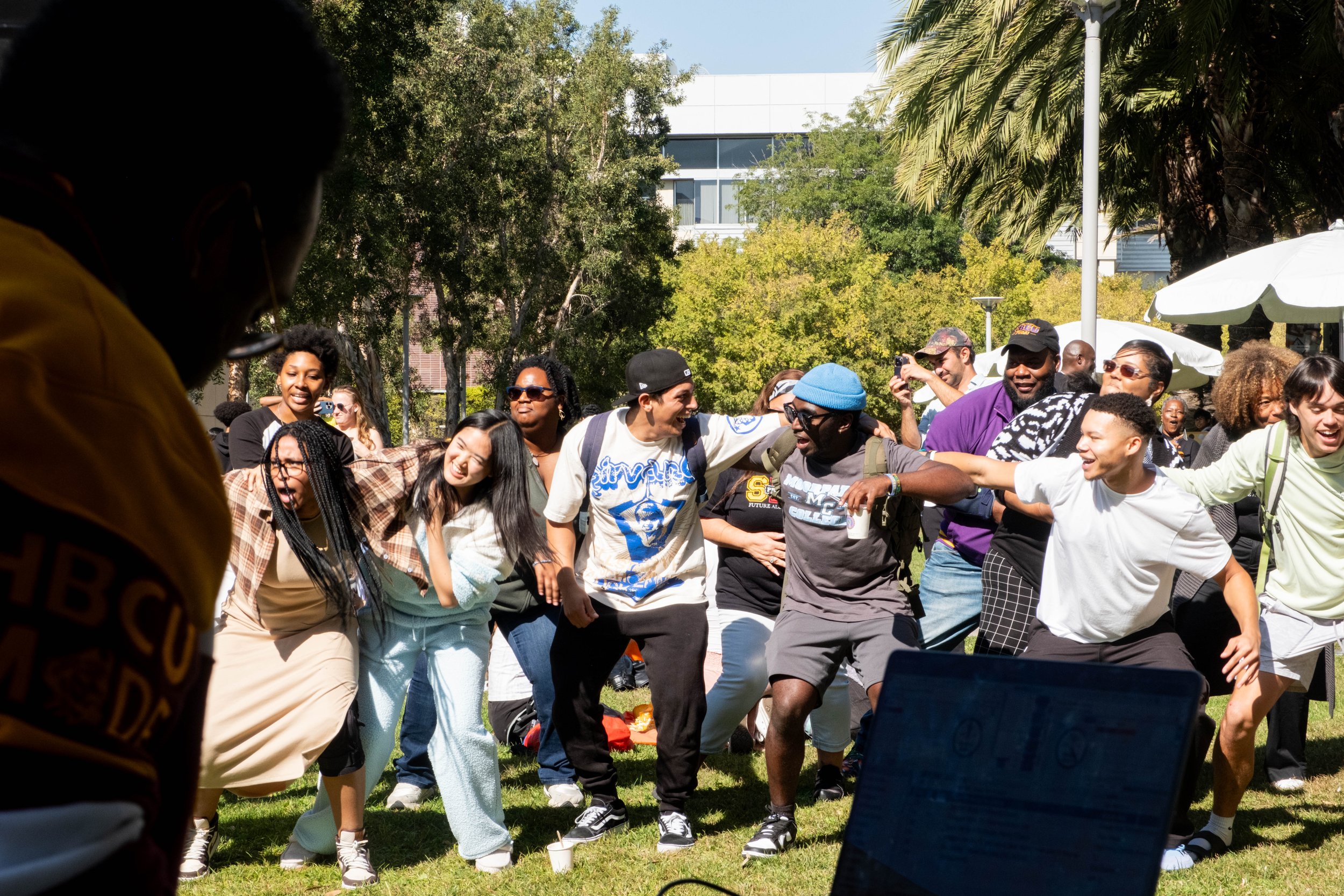
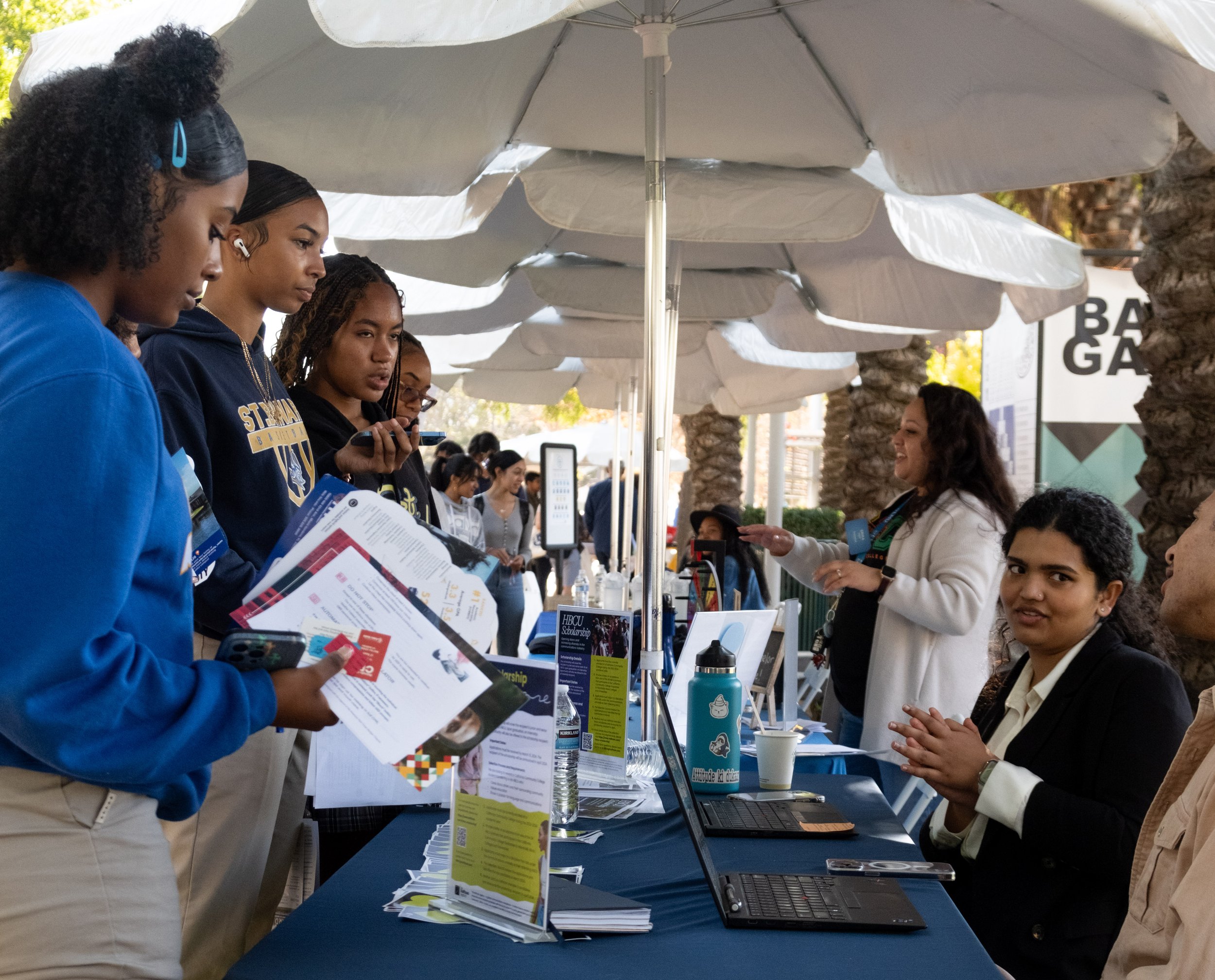
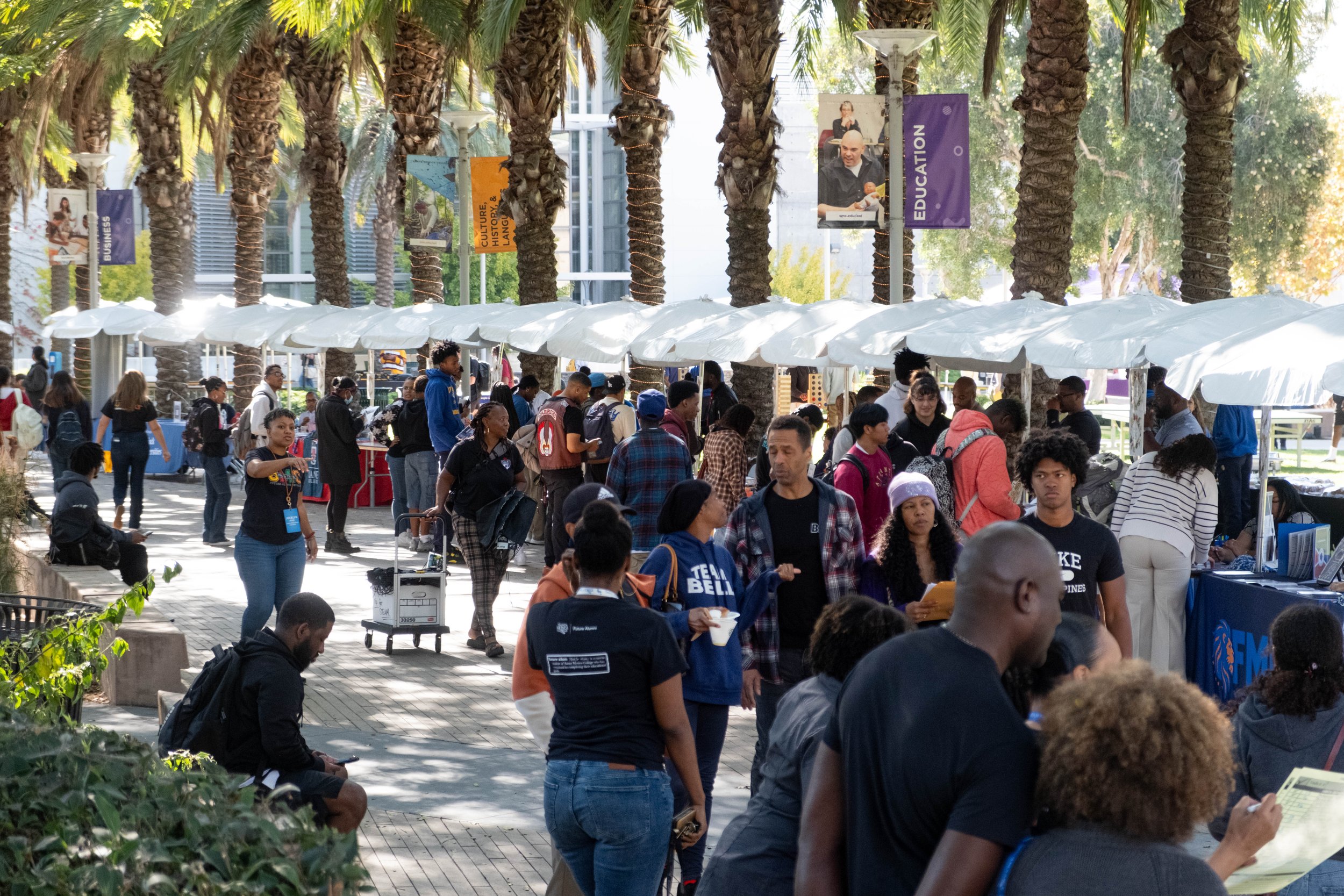
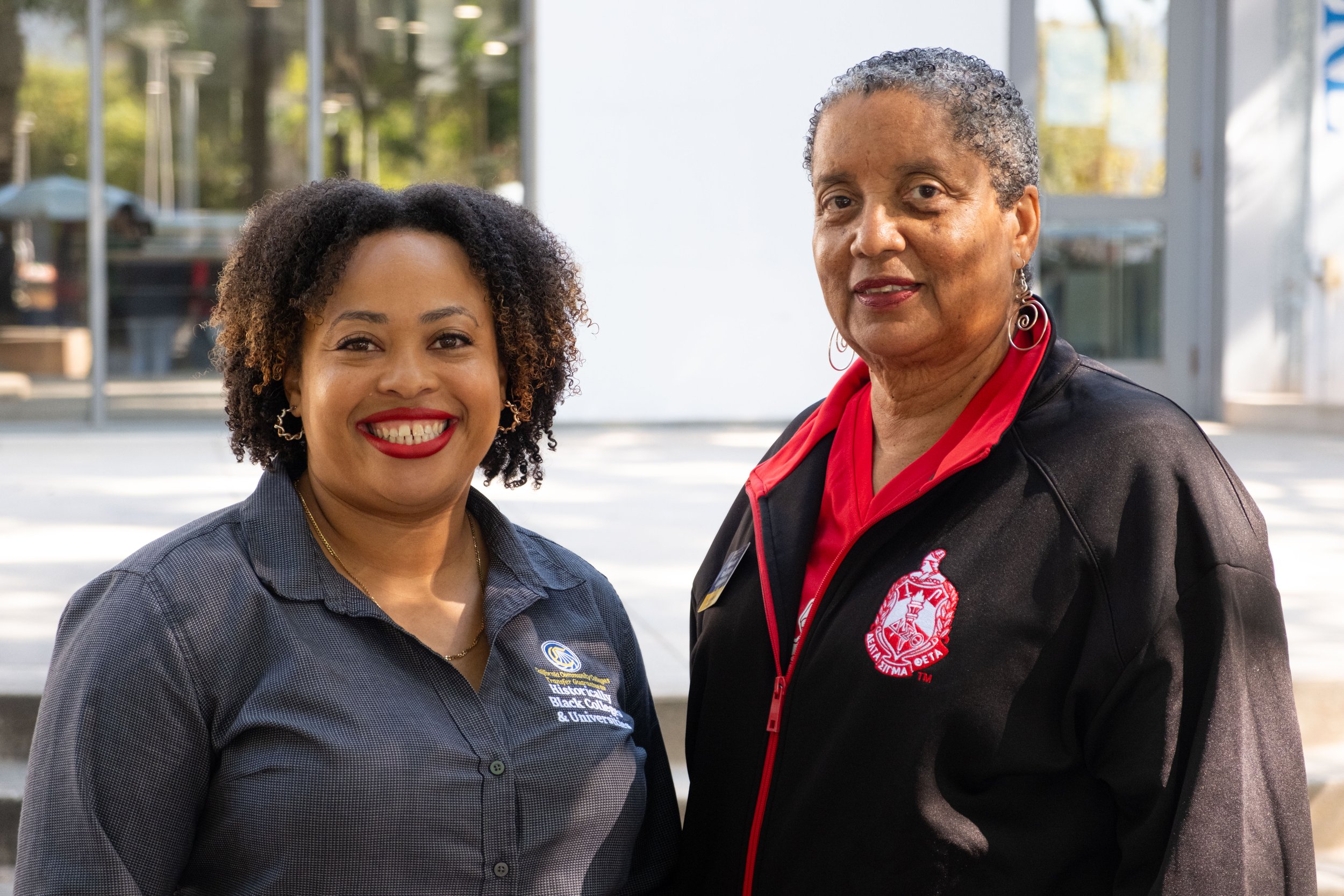
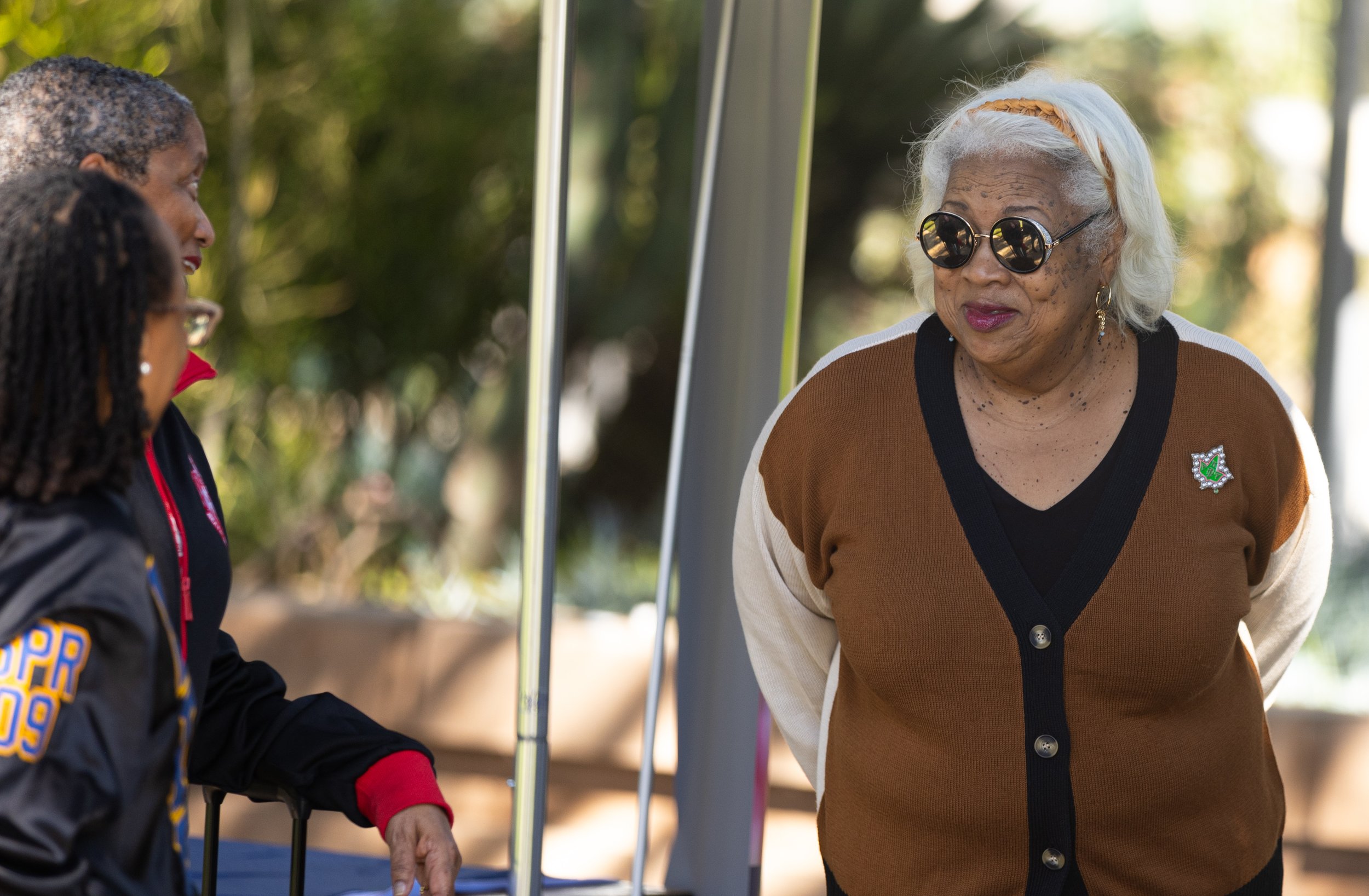
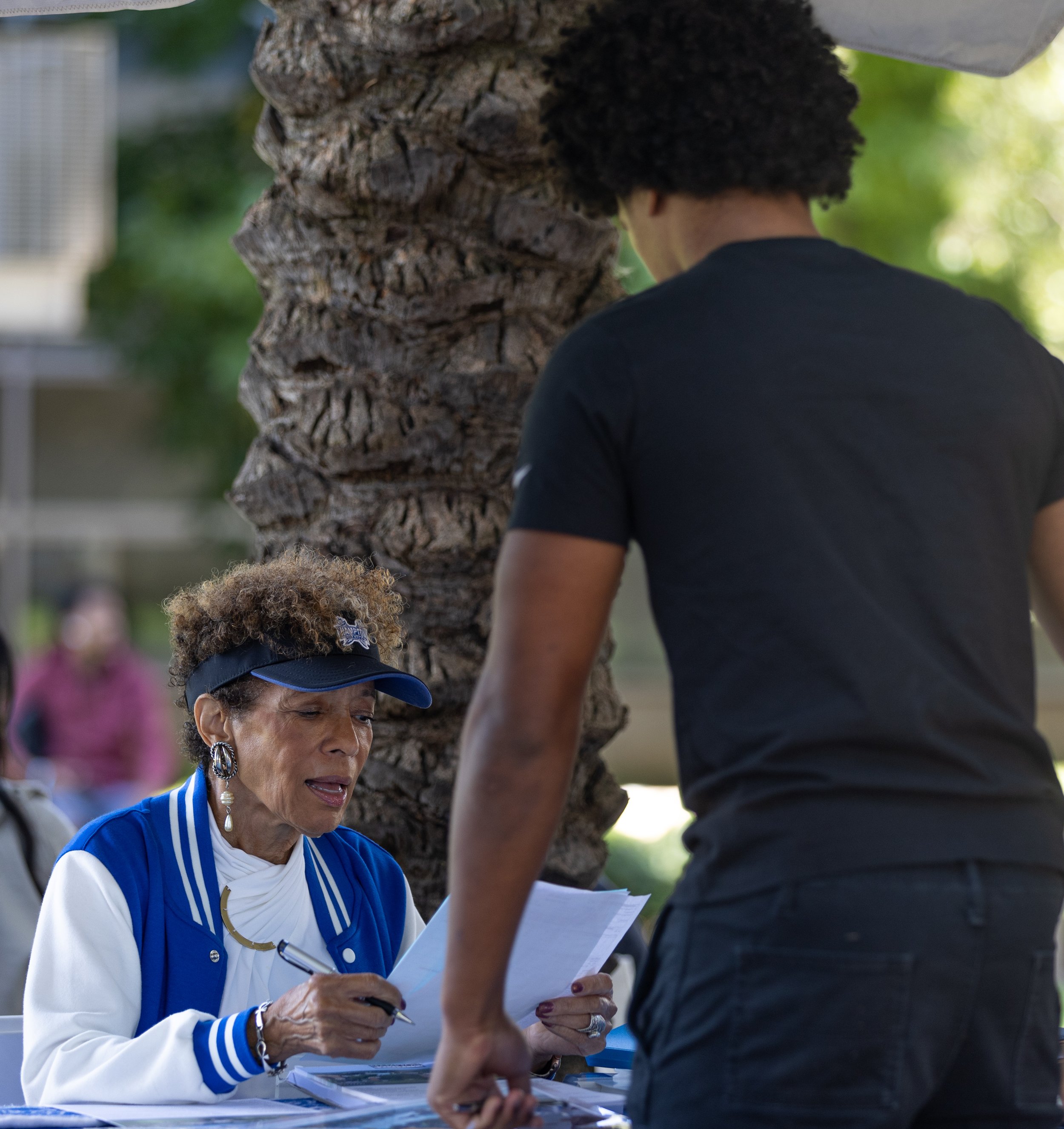
Exploring the Rich Legacy of HBCUs: A Journey of Inclusivity, Opportunity, and Celebration
The annual Historically Black Colleges & Universities (HBCU) Caravan took place at Santa Monica College (SMC) on Thursday, Oct. 26, marking the California Community Colleges Transfer Guarantee to Historically Black Colleges & Universities (CCCHBCU) debut on the main campus. Twenty of the thirty-seven HBCUs that partnered with CCCHBCU, including institutions like Clark Atlanta University, Virginia State University, and Lincoln University, attended the event.
In 2020, SMC was selected to host the event, but it was postponed due to the COVID-19 global pandemic. SMC’s transfer center has gone through a thorough screening process for this initiative, introducing a proposal system with expectations and local support requirements to ensure that hosting the caravan is a meaningful endeavor.
Dr. Karen McCord, one of the founding members of the statewide Umoja program and third-generation legacy of the HBCU system, shed light on the importance of this approach by addressing a critical concern,
“The inclination of some schools to invite college representatives merely to fulfill a diversity quota, as if to say, we did that this week. If you’re checking that box, you will be doing the work and putting the effort into informing your staff and getting the students out.”
Led by faculty leader Janet Robinson, SMC’s Black Collegians Umoja Community, the Pan African Alliance and SMC’s transfer center organized this college fair as the pinnacle of a series of complementary events and workshops, aimed at encouraging and educating both faculty and students at SMC about HBCUs.
“Everyone should consider an HBCU, especially our students of color. As educators, we are responsible for ensuring all our students know their options. They need to know that the world is their oyster. Now more than ever, after the overturning of affirmative action. We’re here to help them understand what they’re looking for and how to access those options,” said Robinson.
Despite HBCUs being founded and developed during an era of legal segregation, with their primary mission being the education of Black Americans, these institutions have historically been inclusive for all. According to the American Council on Education (ACE), almost three-quarters of all undergraduate students enrolled at HBCUs were Black (73 percent). Over one in 10 were White, and 5 percent were Hispanic or Latino. The remaining 9 percent were from other backgrounds, including 2 percent international students.
When asked why HBCUs might not get the same prestige as public institutions like the UC, CSU, and private schools across the country, McCord said “it’s ignorance.” She highlighted how prominent figures, including Thurgood Marshall, Kamala Harris, and John Lewis, are HBCU alumni and emphasized the significance of these institutions in producing successful individuals. She underscored a lack of awareness, counselors discouraging students from considering HBCUs, and students sometimes failing to research and explore all their educational opportunities thoroughly as additional reasons why these institutions might not always be considered.
“I didn’t know Dillard had such a good film program. I’m looking to transfer to pursue film production. I recently just got out of the military, so I’m just really trying to figure out what I want to do as far as college, and just having options specifically cater to our needs as Black students feels good. I’m very appreciative, for sure,” said Jarret Tillis, a Film Production major.
Efforts are underway to align associate degrees for transfer (ADTs) with bachelor’s degree programs at HBCUs, enabling their inclusion on the ‘I Can Go to College’ website’s transfer search tool. The California Assembly Bill 1400 passage offers up to $5,000 to California Community College students transferring to partner HBCUs, making them more financially feasible.
Dr. Arynn Auzout Settle encouraged students to embrace the unknown when making the journey to a new place for education. “I’m from LA, and I understand the hesitation, but don’t get caught up in how far away from home you might be or comparing California to the East Coast. Lead with an open mind, and it will lead you to experience a new cultural environment that is so rich and unique, just like I did. Take advantage of all that.”
The significance of this occasion was not lost on any of the 500 attendees. With the sunshine out in full force, refreshing shaved ice from the Black-owned Fluffy’s Sno-balls, and the DJ playing timeless music from past and present by renowned Black artists, it was an unapologetic celebration of Black culture. Unity and pride were in the air as faculty members and students from diverse backgrounds danced the staple electric slide, a fitting close to a beautiful day.





